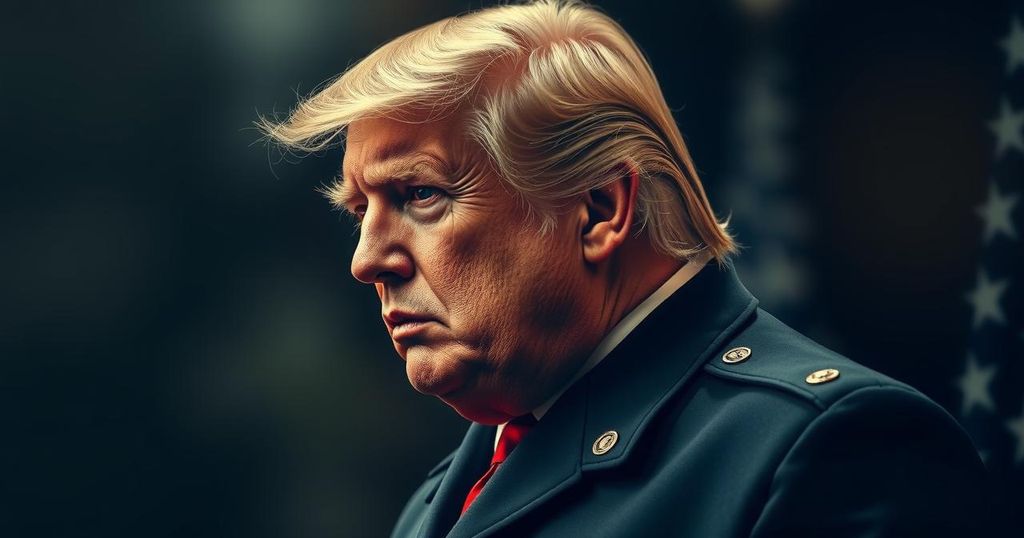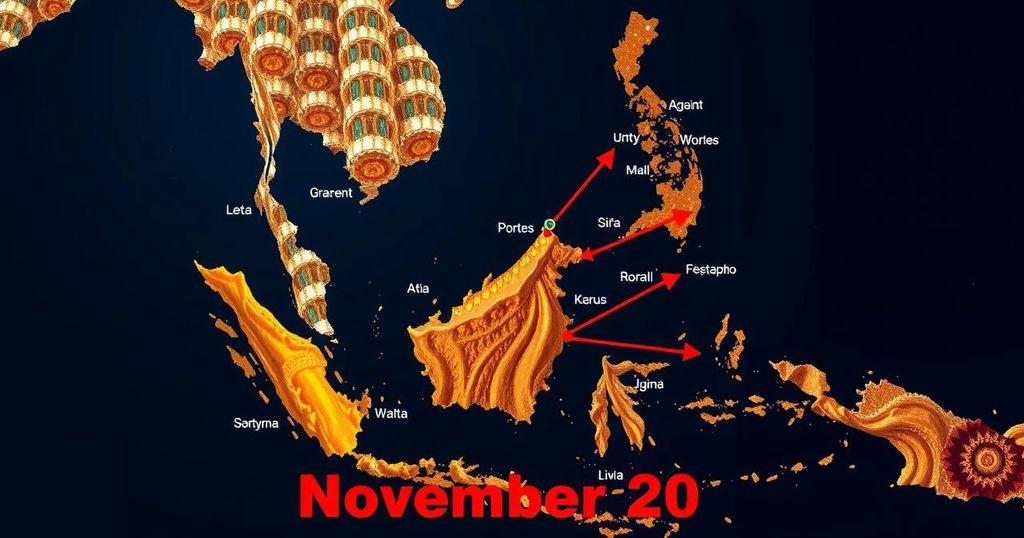Examining the Legal Implications of Military Use in Domestic Turmoil under Trump
Former President Donald Trump proposed using military forces against domestic groups he labels as ‘radical left lunatics’ to manage Election Day disruptions. While the Insurrection Act permits military deployment in times of insurrection, legal scholars warn of the act’s vagueness and potential for abuse. The Posse Comitatus Act restricts military policing, raising questions about the legality of Trump’s suggestions. Historical usage and expert opinions highlight the ongoing legal challenges associated with military involvement within U.S. borders.
Former President Donald Trump has suggested that both active-duty military and National Guard forces could be deployed to address what he terms as threats posed by “radical left lunatics” during potential Election Day disruptions. He argues that the real danger to the United States may not come from foreign adversaries, but from individuals within the country. Although the discussion around the utilization of military forces to maintain order following an electoral process is speculative—especially since Trump would not retain command of military units until mid-January, after the inauguration—it is a topic he has broached in the past, such as proposing military involvement at the southern border to control immigration. In a recent interview, Trump remarked, “I think the bigger problem are the people from within. We have some very bad people. We have some sick people, radical left lunatics… And it should be very easily handled by, if necessary, by National Guard or really necessary by the military, because they can’t let that happen.” There arises a critical question regarding the legal use of military force within U.S. borders, particularly concerning policing American citizens during civil unrest or political protests. Trump’s supporters often reference the Insurrection Act of 1807, a law historically invoked to suppress rebellions, as a legal basis for such military deployment. However, legal scholars express concerns that this act could be misinterpreted or misused, highlighting its ambiguous language and the potential for abuse. The Posse Comitatus Act of 1878 primarily prohibits the use of active-duty military personnel in domestic law enforcement, promoting the principle that the armed forces should not be employed against civilians. Conversely, the Insurrection Act provides the president with the authority to deploy military or militia forces in instances of insurrection or significant domestic disorder. It has been invoked historically, notably by figures such as President Abraham Lincoln and President Lyndon B. Johnson, yet it remains unutilized by Trump during his administration. Legal experts have cautioned against the unchecked powers afforded to any president under the Insurrection Act, with proposals for reform highlighting bipartisan concerns about its implications. This apprehension is further compounded by Trump’s musings on other legal frameworks, such as the Alien Enemies Act of 1798, which allows for the deportation of noncitizens from opposing nations. Ultimately, the legality of any military deployment suggestions put forth by Trump would require adjudication in the courts, including those presided over by judges he appointed.
The article discusses former President Donald Trump’s propositions regarding the potential use of military forces to address what he perceives as threats from domestic groups identified as part of the ‘radical left.’ The military’s role in policing civilians is a complex legal issue in the United States due to laws such as the Posse Comitatus Act, which restricts the deployment of military personnel for domestic law enforcement. Though the Insurrection Act allows the president to call upon military forces during serious unrest, its usage raises questions of legality and potential political abuse. Historical precedents are provided to illustrate how similar laws have been invoked in times of crisis, further highlighting the legal and constitutional ramifications of Trump’s proposed actions.
The discourse surrounding former President Trump’s suggestion to potentially deploy military resources to address internal unrest emphasizes significant legal and constitutional complexities. While historical laws such as the Insurrection Act allow for military involvement in certain scenarios, the potential abuse of such powers has elicited widespread concern among legal experts and scholars. Ultimately, the legitimacy of Trump’s proposals would hinge upon judicial interpretation and oversight.
Original Source: abcnews.go.com








Post Comment